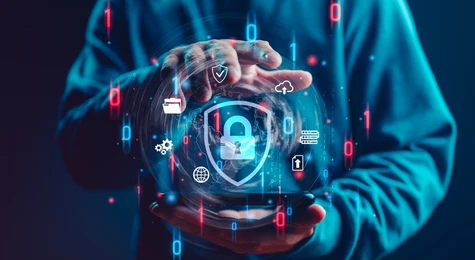CYBERSECURITY

ALCORT has extensive experience in the design, deployment, and management of telecommunications networks. Due to our close relationship with numerous electrical distributors in the country, we are well acquainted with their infrastructure as well as other networks in the private sector. We take care of covering the broad spectrum of security and cybersecurity for the communications of these distributors and associated actors, starting from the identification of threats, risk categorization, and the definition of procedures for the implementation of a Cybersecurity Plan. Cybersecurity plans culminate in a series of specific measures outlined in the corresponding protection plans. Additionally, we provide general and specific training for various departments.
CRITICAL INFRASTRUCTURE PROTECTION
The term critical infrastructure is defined as any element, system, or part thereof that is essential for maintaining vital social functions, health, physical integrity, security, and the social and economic well-being of the population, and whose disruption or destruction would seriously impact a group of citizens in a state by preventing the continuation of those functions. The energy system, therefore, is part of this infrastructure.
In recent years, concern about the security of energy supply has intensified, particularly regarding the protection of critical infrastructure for energy supply. In addition to the international reference frameworks of EU Directive 2008/114/EC and the U.S. National Infrastructure Protection Plan of 2009, Spain has approved Law 8/2011 and Royal Decree 704/2011 concerning the identification and protection of critical infrastructure.

Traditionally, the focus of energy security has mainly concentrated on accidents and natural disasters. However, since 2001, authorities and the industry have had to consider the threat of intentional harm to a much greater extent.
Currently, ALCORT’s approach with its clients is directed towards events related to vulnerability caused by cyberattacks and cybercrime, as well as providing training to develop the necessary security plans to address any incidents.


